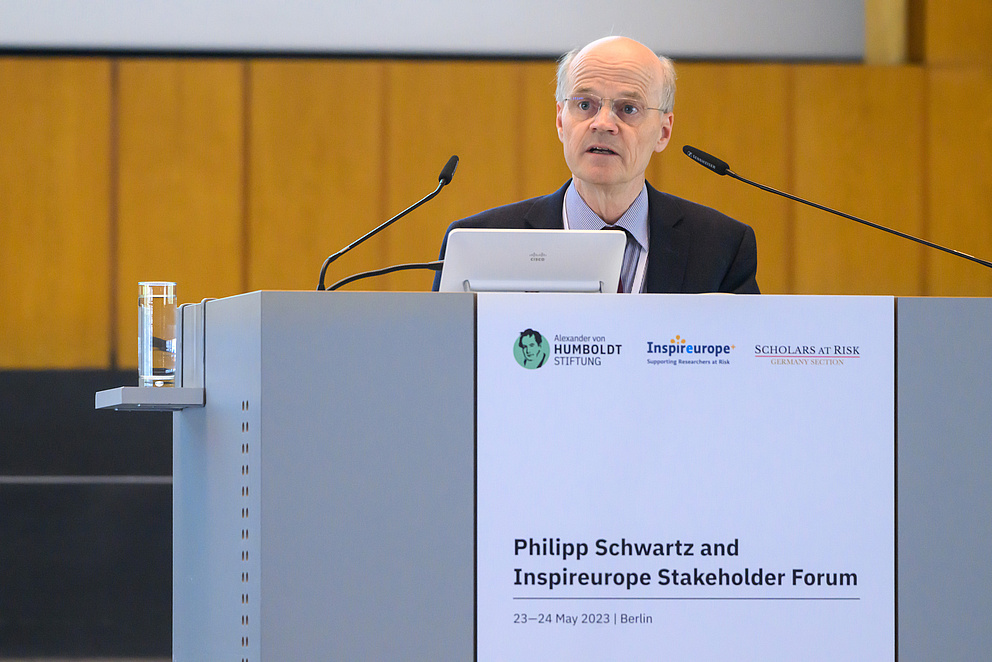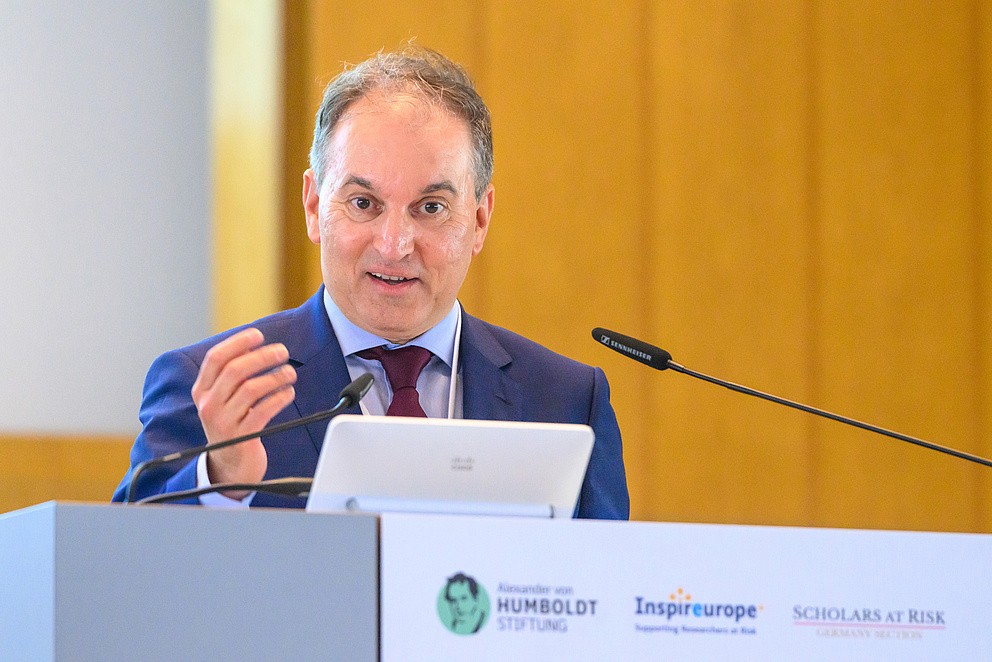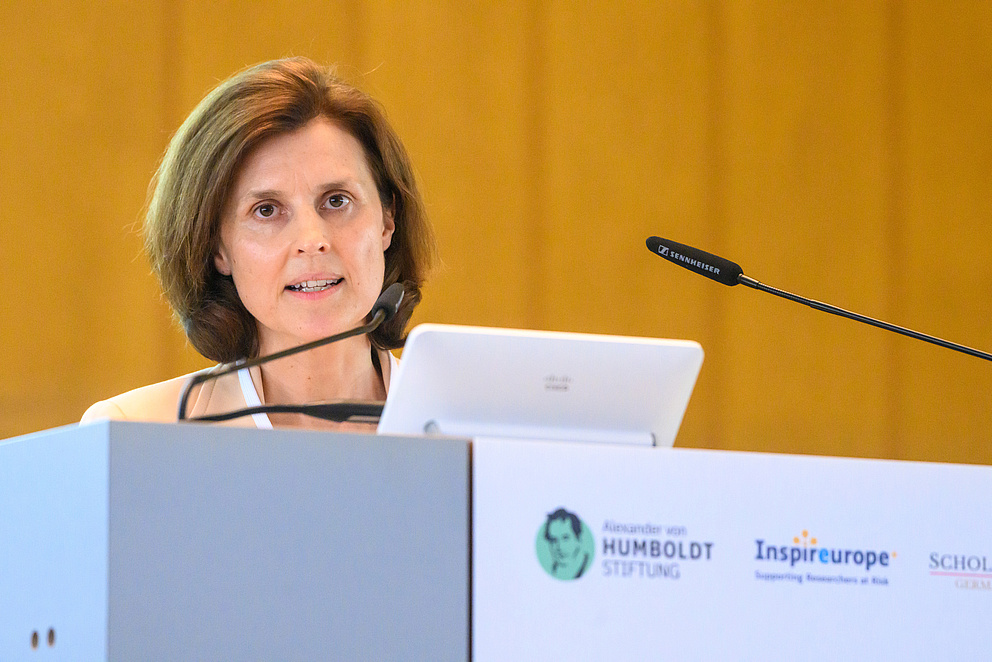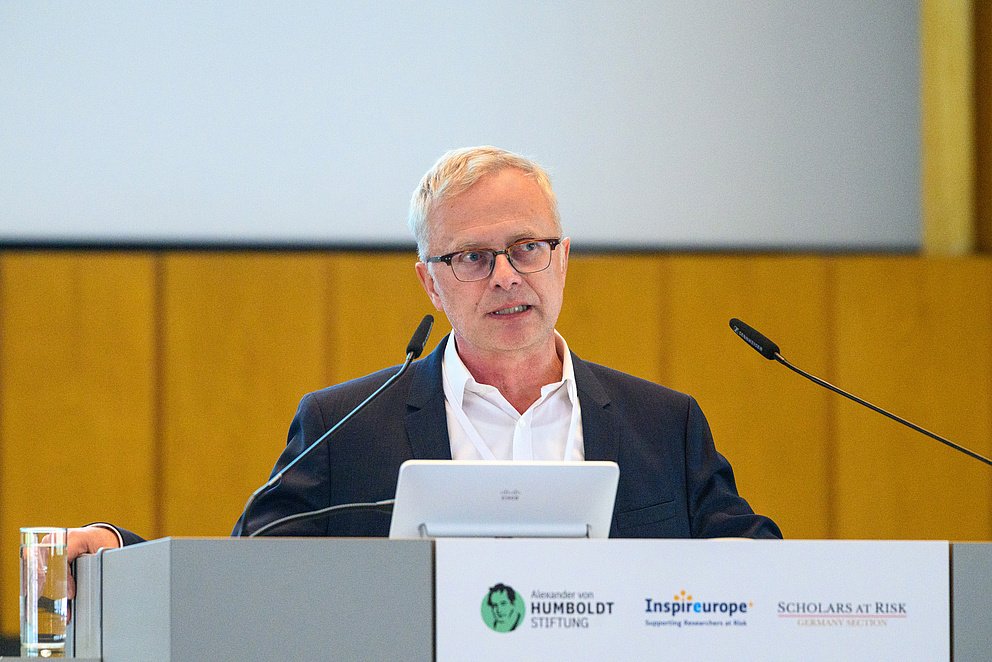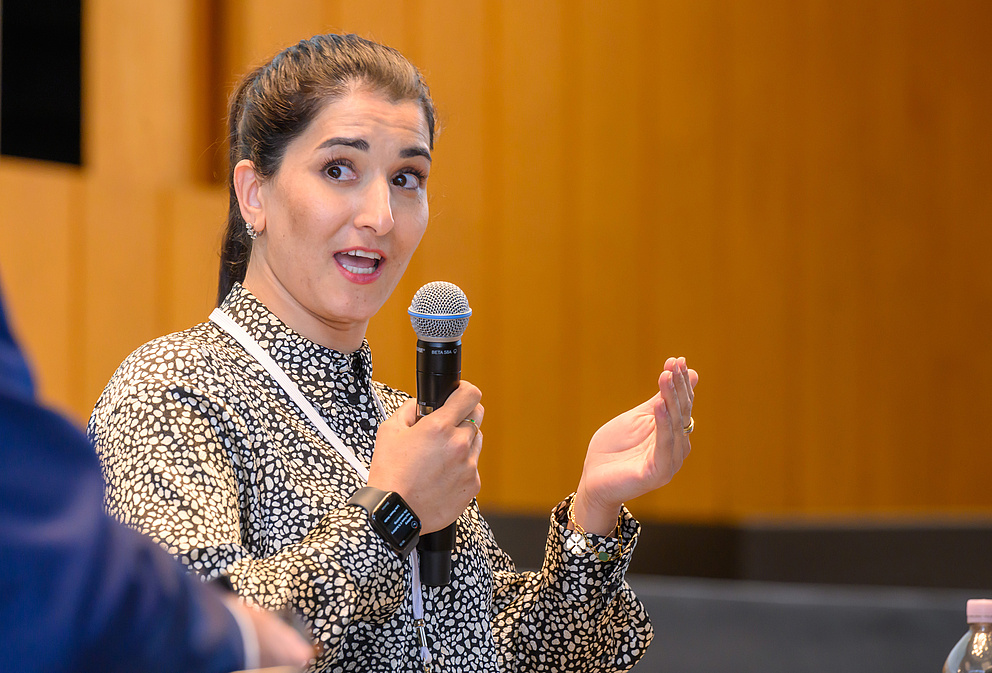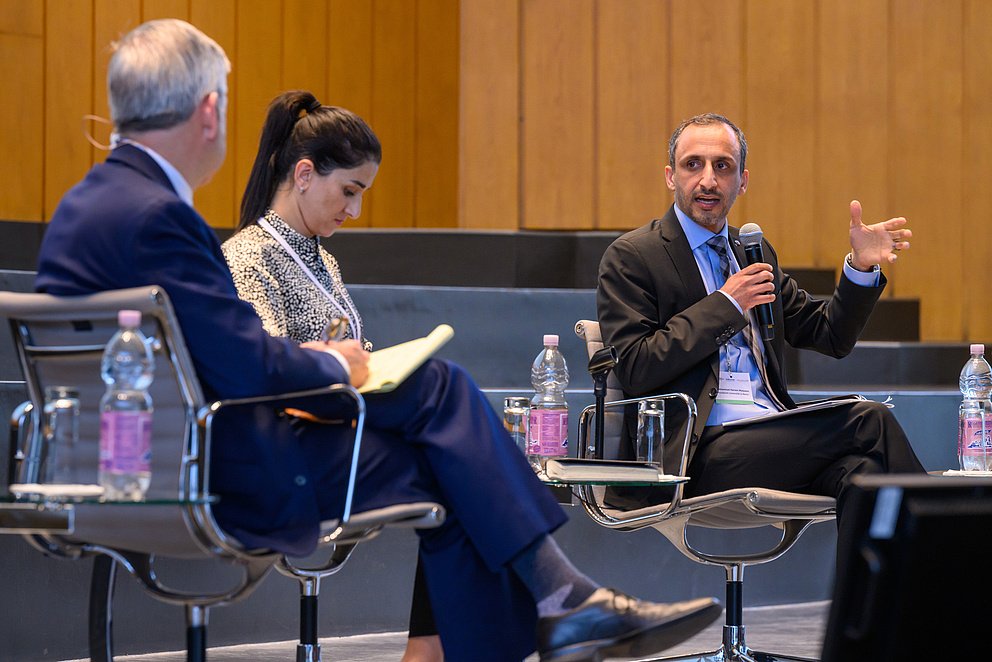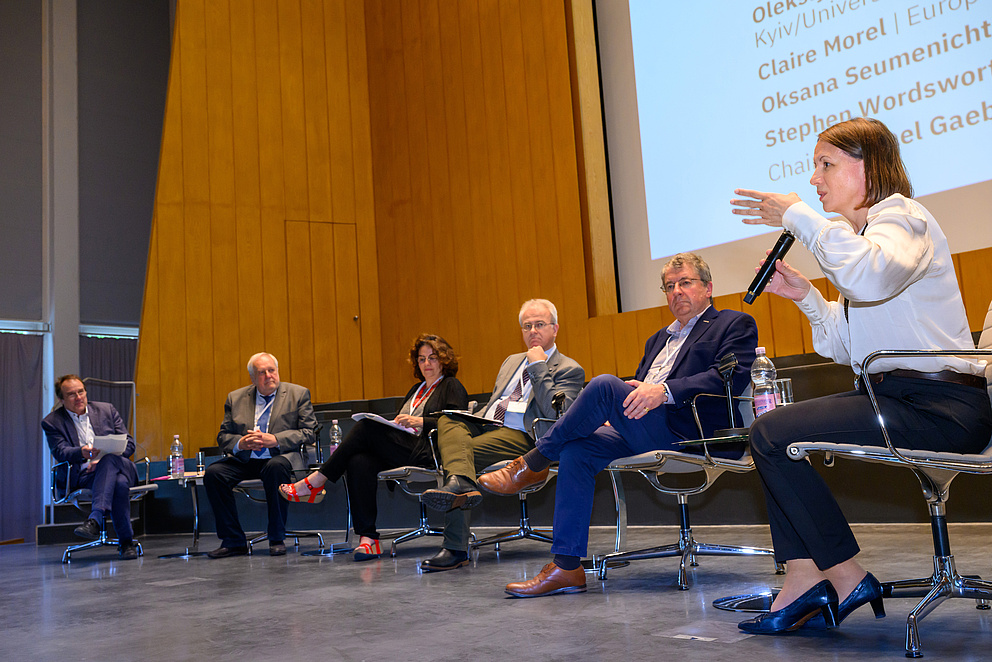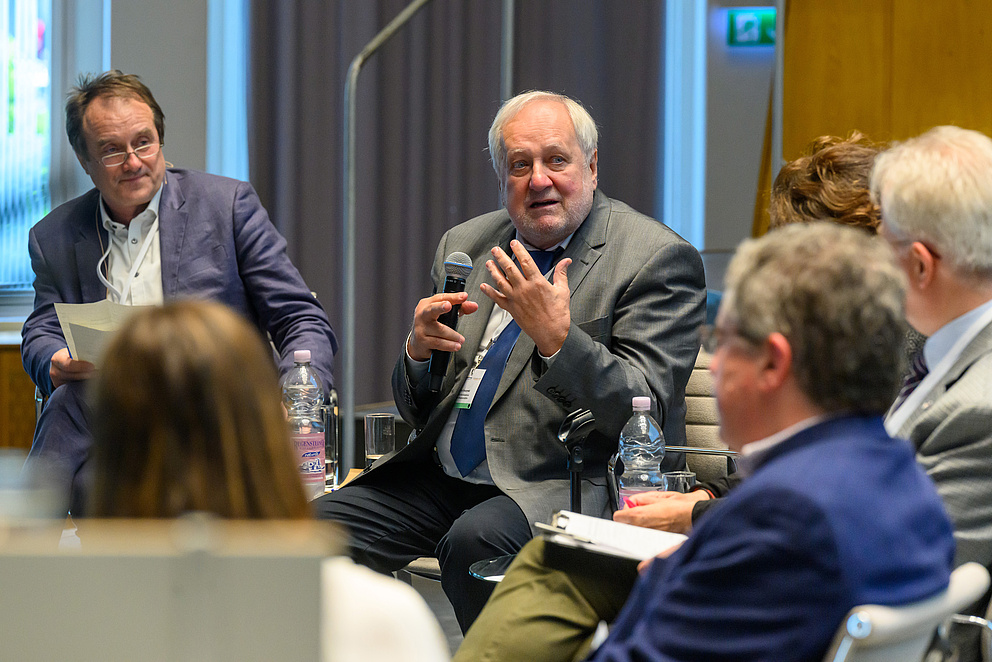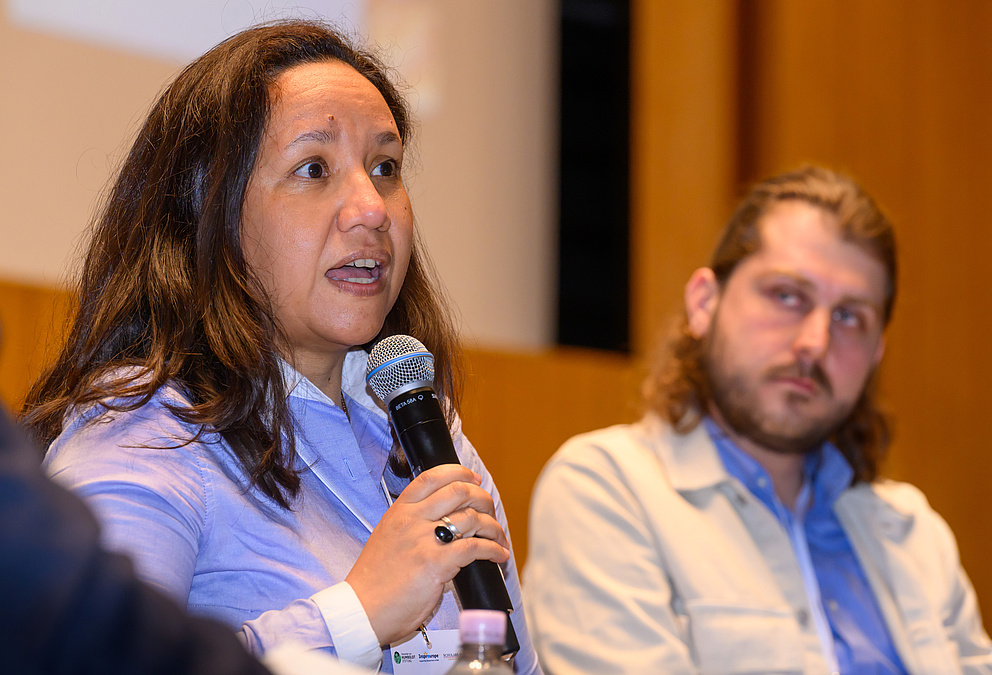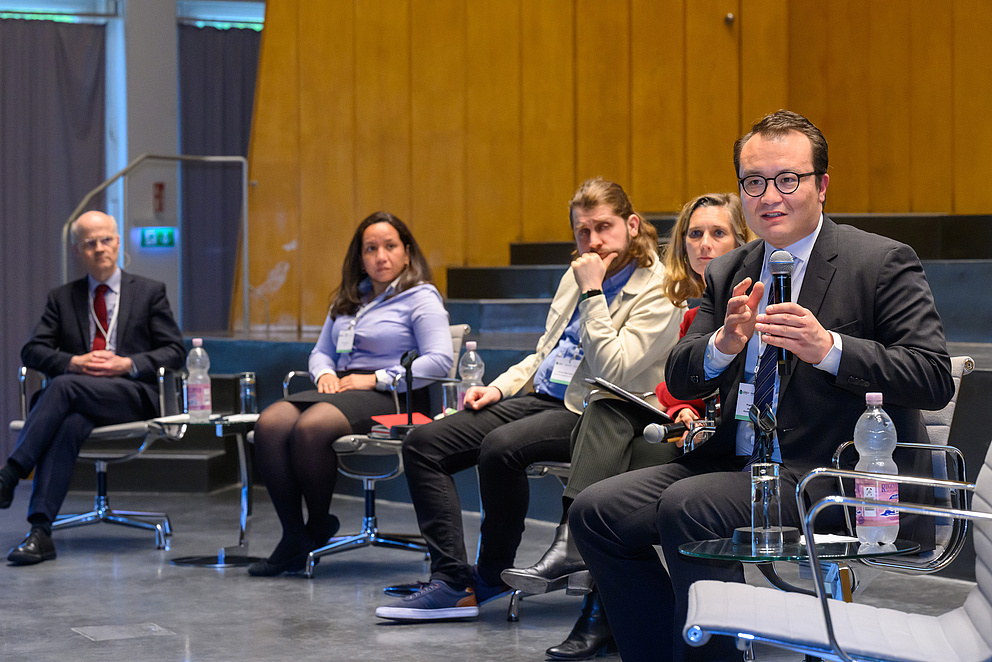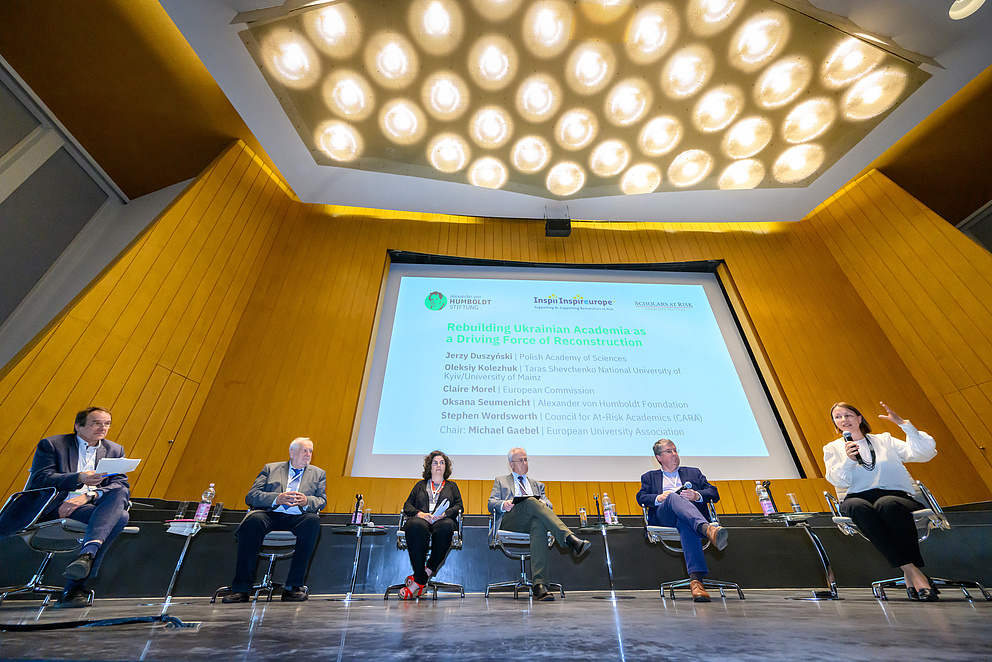

Contact
Press, Communications and Marketing
Tel.: +49 228 833-144
Fax: +49 228 833-441
presse[at]avh.de
The Philipp Schwartz and Inspireurope Stakeholder Forum is an important platform for a Europe-wide exchange between stakeholders seeking to support researchers at risk. This year, the conference was held at Freie Universität Berlin and Cafe International (Cafe Moskau). In his opening statement, the Secretary General of the Humboldt Foundation, Enno Aufderheide, thanked researchers at risk around the world for their courage and the inner strength they draw upon to stand up against injustice. “My deepest respect to the researchers and students who refuse to bow to the threats of persecution and armed conflict. We have a lot to learn from you.” International exchange, as Vito Cecere, Director for Academic Relations, Education and Research Policy at Germany’s Federal Foreign Office, observed, is an important instrument for ensuring the freedom of researchers: “Protecting vulnerable members of civil society and offering safe spaces for free intellectual pursuit, artistic expression and critical thinking is part of German − and European Science Diplomacy.”

The forum examined various topics and areas of conflict relating to scientific and academic freedom: Against the backdrop of the current protest movements, the Iranian archaeologist Maryam Dezhamkhooy gave a keynote address on the historical roots of female resistance and the systematic oppression of women in her country.
Experts from research, research funding and politics discussed how science and academia can help rebuild Ukraine. They all agreed: It will require a coordinated development of the country’s resources and capacities, flexible support models (including visa regulations) and the expansion of collaboration opportunities for Ukrainian researchers − not least in order to avoid a brain drain and ensure the return of expertise to the country.
Fellows from the French programme PAUSE and the Philipp Schwartz Initiative from Venezuela and Turkey and representatives of national and European organisations reported on what it means to plan in the face of an uncertain future. Combatting human rights violations in one’s own country without endangering one’s own life or the lives of colleagues presented a particular challenge, noted researchers from Afghanistan. Both researchers convincingly called for not losing sight of the dramatic legal situation of women and girls in Afghanistan.
Human rights and freedom of science cannot be selective. They should be there for everyone. Afghanistan should not be forgotten.
The second day of the conference featured informational, training and networking activities for Philipp Schwartz and MSCA4Ukraine fellows and for other researchers in exile as well as for academic mentors and other representatives of German and European host institutions.
The conference was jointly organised by the Alexander von Humboldt Foundation with its Philipp Schwartz Initiative together with Inspireurope+. Eleven European institutions including the Humboldt Foundation are working together in the Inspireurope+ initiative (Initiative to Support, Promote and Integrate Researchers at Risk in Europe) to coordinate and expand their efforts to protect and support at-risk researchers in Europe.

